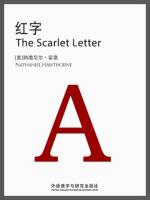Red Letter
用户671294
After reading "Red Letter," I couldn't help but be captivated
by the raw and poignant depiction of the struggles faced by Chinese
women during the Cultural Revolution. The novel, written by renowned
Chinese author Shi Guangnan, presents a powerful narrative that leaves a
lasting impact on its readers. Set in a small village in rural China
during the mid-196s, the story revolves around the life of Li Xue, a
young woman whose life takes a dramatic turn when she receives a
mysterious red letter. As the narrative unfolds, the reader becomes
increasingly aware of the deep-rooted discrimination and oppression
faced by women in Chinese society, particularly during this turbulent
period. What struck me the most about "Red Letter" was the
vivid and unapologetic portrayal of the hardships endured by Li Xue and
other women like her. From an early age, Li Xue is taught to accept her
place as a second-class citizen, destined to fulfill traditional gender
roles and face limited opportunities for personal growth. Despite her
dreams of education and independence, Li Xue is swept up in the changing
tide of the Cultural Revolution, which only further exacerbates the
difficulties she faces. Through the lens of Li Xue's experiences, Shi
Guangnan skillfully shines a light on the pervasive misogyny and
inequality that plagued Chinese society during this time. The author
offers a critical examination of the state-sanctioned propaganda that
perpetuated the subjugation of women, relegating them to the background
while championing male heroes and revolutionaries. In "Red
Letter," the red letter itself serves as a powerful symbol of Li
Xue's struggle for agency and independence. It becomes a catalyst for
her personal awakening, prompting her to question the societal norms
that have confined her and seek a path of self-discovery amidst a sea of
oppression. The red letter becomes more than a mere object; it becomes a
potent tool for rebellion and resistance. What struck me as
particularly poignant was Li Xue's unwavering determination to challenge
the status quo and assert her own identity. In a society that thrives on
conformity and obedience, she courageously defies expectations and takes
risks. Her journey to self-discovery is fraught with setbacks and
sacrifices, yet she persists, refusing to be silenced or confined by
societal expectations. The novel also delves into the complex dynamics
of relationships, both romantic and platonic, and how they intersect
with societal expectations. Li Xue's tumultuous relationship with her
childhood friend-turned-lover, Zhang Yu, adds a layer of emotional depth
to the narrative. Their love serves as a glimmer of hope amidst the
darkness, a reminder that even in the midst of chaos, human connections
can transcend societal barriers and offer solace. As I turned the pages
of "Red Letter," I found myself deeply moved by Li Xue's story
and the struggles of countless other women who were silenced by their
oppressive circumstances. The novel serves as a powerful reminder of the
resilience of the human spirit and the necessity of fighting for
equality and justice, even in the face of seemingly insurmountable odds.
In conclusion, "Red Letter" is a thought-provoking and
emotionally charged novel that sheds light on the struggles and triumphs
of Chinese women during the Cultural Revolution. Through its powerful
narrative and compelling characters, the author illuminates the deeply
rooted sexism and oppression that plagued Chinese society at the time.
This novel serves as a poignant reminder of the importance of pursuing
equality and justice, even in the face of overwhelming adversity.




 京公网安备 11010802032529号
京公网安备 11010802032529号